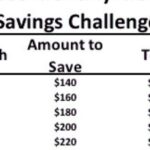Managing money is a challenge for many. From rising expenses to unexpected bills, it’s easy to lose track of finances.
That’s why learning personal finance tips can change your life. With the right strategies, you can save, invest, and reach your financial goals.
Keep reading to explore easy and effective ways to take control of your financial future.

Create a Monthly Budget
One of the best personal finance tips is building a monthly budget. It helps track income and spending patterns. With budgeting, you can avoid overspending and save regularly. Use tools like Mint or YNAB to automate this process.
Set Clear Financial Goals
Define your short-term and long-term money goals. Want to buy a car, home, or travel? Write it down. Having goals gives you motivation and direction. Break goals into steps and set timelines.
Build an Emergency Fund
Life is unpredictable. Medical bills, job loss, or car repairs can drain your savings. An emergency fund prevents debt in such cases. Save at least three to six months’ expenses in a high-yield savings account.
Save Before You Spend
Always pay yourself first. Treat savings like a monthly bill. Automate transfers to your savings account. It ensures consistency and helps build wealth without much effort.
Use Credit Cards Wisely
Credit cards offer convenience and rewards but can lead to debt. Only charge what you can pay off monthly. Keep utilization under 30%. Pay on time to avoid interest and protect your credit score.
Cut Unnecessary Expenses
Review your spending regularly. Cancel unused subscriptions. Cook at home more often. Small changes can save hundreds. Apps like Trim or Rocket Money help track and reduce recurring charges.
Avoid Impulse Purchases
Shop with a list. Wait 24 hours before buying non-essential items. This delay prevents regret and boosts mindful spending.
Invest for the Future
Saving is good, but investing grows your money. Learn about mutual funds, ETFs, and stocks. Use apps like Robinhood or Fidelity. Start small and be consistent. Time in the market beats timing the market.

Understand Your Credit Score
Your credit score affects loan approvals, interest rates, and even job offers. Check it often using free tools like Credit Karma. Maintain a good score by paying bills on time and reducing debt.
Limit High-Interest Debt
Pay off credit cards and payday loans quickly. These come with high interest and fees. Consider the snowball or avalanche method to reduce debt efficiently.
Plan for Retirement Early
Start contributing to retirement plans like a 401(k) or IRA. Even small amounts grow over time. Take advantage of employer matches if available. Compound interest works best with time.
Monitor Your Financial Progress
Track your net worth, savings, and debts monthly. Use spreadsheets or finance apps. Celebrate small wins. Staying informed keeps you motivated and focused.
Get Insurance Protection
Insurance protects your wealth. Have health, auto, life, and home coverage. It saves you from huge out-of-pocket expenses. Shop around for the best rates annually.
Teach Kids About Money
Start teaching financial skills early. Use allowances to show budgeting. Open a savings account in their name. Kids who learn money basics grow into smart adults.
Review Subscriptions Often
Streaming services, gym memberships, or apps may silently charge you monthly. Check and cancel any you don’t use. These charges can add up fast.
Shop with a Purpose
Plan your purchases. Look for discounts or coupons. Use cash-back apps like Rakuten. This strategy reduces unnecessary spending and increases savings.
Use Public Transportation
Cars are expensive—fuel, maintenance, and insurance. Using public transport can cut monthly costs significantly. If available, it’s a budget-friendly option.
Refinance Loans When Needed
Check if refinancing loans can save you interest. This applies to auto, home, or student loans. Lower rates reduce monthly payments and total interest.
Learn Basic Tax Skills
Understand your taxes. Know the deductions and credits available. Use tools like TurboTax or consult a tax advisor. Better tax planning can save you money annually.
Use Financial Literacy Resources
Read books like Rich Dad Poor Dad or blogs like NerdWallet. Listen to podcasts. Learning keeps you ahead. Knowledge empowers better financial decisions.
Key Benefits of Smart Planning
Smart personal finance tips bring peace of mind. You avoid debt, build wealth, and achieve freedom. Every small step counts. Start today and stay consistent.










